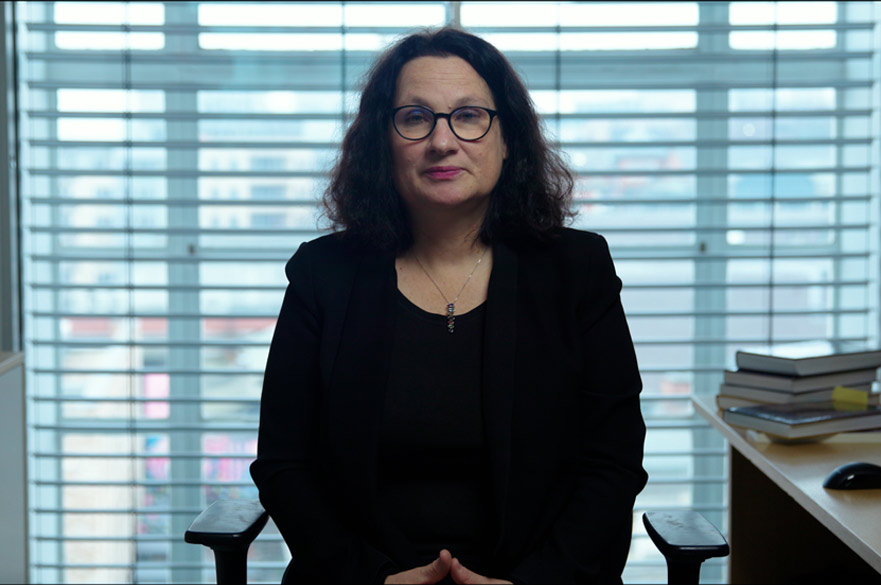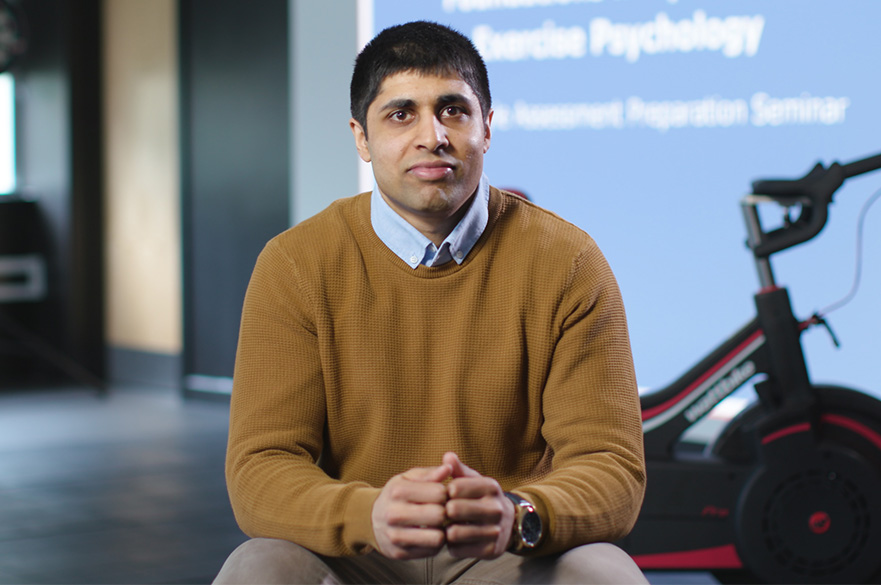Revolutionising Design: Engineering for the future
Kartikeya Walia, Lecturer
Being a researcher is like being a detective of the unknown. Imagine you're on a quest to solve exciting mysteries in a particular area - like how things work, why they work that way, or how to make them work better.
My research journey
From a young age, I've been captivated by the workings of the world around me. As a child, I was the one constantly disassembling gadgets and rebuilding them, eager to understand what it was that made them function. My early attempts at fixing electronics (although mostly failures) at home fuelled my interest and taught me valuable lessons. This curiosity gradually evolved into a passion for research.
During my undergraduate studies in Mechanical Engineering at Panjab University, in India, I actively participated in various research projects. These experiences deepened my understanding of the research process - from exploring new ideas to building prototypes and conducting thorough testing, analysis and publishing research results. My interest in mechatronics and robotics grew, and I became particularly fascinated by concepts like design and material optimisation, sustainability and design for manufacturing. I developed a keen interest in creating optimised designs and making manufacturing economically viable.
One significant experience of putting this into practice came during my undergraduate degree. I led a team of my peers to design and create a go-kart to enter the International Series of Karting and Trinity Karting Trophy competitions. We were constrained by limited resources and had to fund the project from our own pockets – this meant that we had to optimise the go-kart design to not only be cost-effective, but also lightweight and innovative. We ended up winning the 'Best Team' award.
At the age of 19, I also purchased a 3D printer and set up a small startup from my home, specialising in printing unique objects for friends and family. I even began selling these personalised gifts, effectively turning it into a small-scale business. Throughout this venture, I consistently prioritised the optimal use of materials, contributing to the sustainability aspect that has become a central focus in my research journey.
During my undergraduate years, I sought international research experience and, after reaching out to various universities, had the privilege to work as a visiting student researcher at NTU. Under the mentorship of Professor Neil Mansfield, I contributed to human factors related to autonomous vehicle seat design in collaboration with Bridgestone Japan. This experience not only led to a Memorandum of Understanding between NTU and Panjab University, but also afforded me the opportunity to present my work to the Vice-Chancellors of both universities in 2018.
Following my undergraduate degree, I worked in India in the field of Design for Additive Manufacturing before pursuing a PhD in NTU’s Department of Engineering under the supervision of Professor Phillip Breedon, along with colleagues from PepsiCo, UK. Completing a PhD not only reinforced my commitment to research but also eliminated any self-doubts about choosing academia as a career. I discovered a genuine enjoyment for the challenges and rewards that come with research. After completing my PhD, I applied for a Lecturer in Design Engineering position at NTU and, following a successful interview, commenced a permanent role as a Lecturer.
As part of my research, I utilise cutting-edge technologies like robotics, Artificial Intelligence (AI), Generative Design (GD) and Additive Manufacturing to develop designs that are not only economical, but they’re also sustainable and reusable, meaning that they minimise material wastage. By emphasising optimal designs that require less manufacturing, the costs are reduced, making products more affordable for consumers.
With the power of GD and AI, I can create designs that defy traditional thinking and challenge the status quo, creating solutions that might not even cross a designer’s mind due to their preconceptions or biases. To bring these designs to life, I use additive manufacturing. Additive manufacturing, such as 3D printing, creates objects layer by layer, which helps to minimise waste during manufacturing.
Kartikeya's PhD graduation at NTU in Summer 2024
What fascinates me about my field of research is the opportunity to integrate new technological advances to enhance existing processes for the betterment of our planet. My work has direct implications and impact on our environment. In a world with a growing population and limited resources, optimising material usage and reducing waste is not just crucial, but a solid hope for sustaining our planet.
My research holds significant personal meaning for me. It's a source of pride and immense satisfaction. The joy that comes when things finally work after days of setbacks is unparalleled. Even the failures, which often fuel late-night contemplation, provide valuable insights. Each small step forward in my research journey brings a sense of accomplishment. It's not just about the destination but the process.
Follow my story
My story doesn’t end here. Keep up to date with me and my research by keeping an eye on my academic profile.
Kartikeya Walia
Kartikeya's research focus lies at the intersection of design, manufacturing and robotics.
During Kartikeya's engineering journey in India, he actively took on projects during his undergraduate years, skilfully navigating logistical, financial constraints, and inherent limitations. These challenges fuelled innovation, propelling Kartikeya to creatively design prototypes and projects, optimising designs within the given constraints and making the solutions more economical. The pursuit of efficient material usage due to limitations became a cornerstone, laying the foundation for sustainable design engineering.
Meet our researchers
Forget lab coats and research papers. It's time to get personal. Meet the people behind the research and uncover fascinating truths about their experiences.

Ursula F. Ott
International decision making
Learn how Ursula is connecting cultures to improve business negotiations
